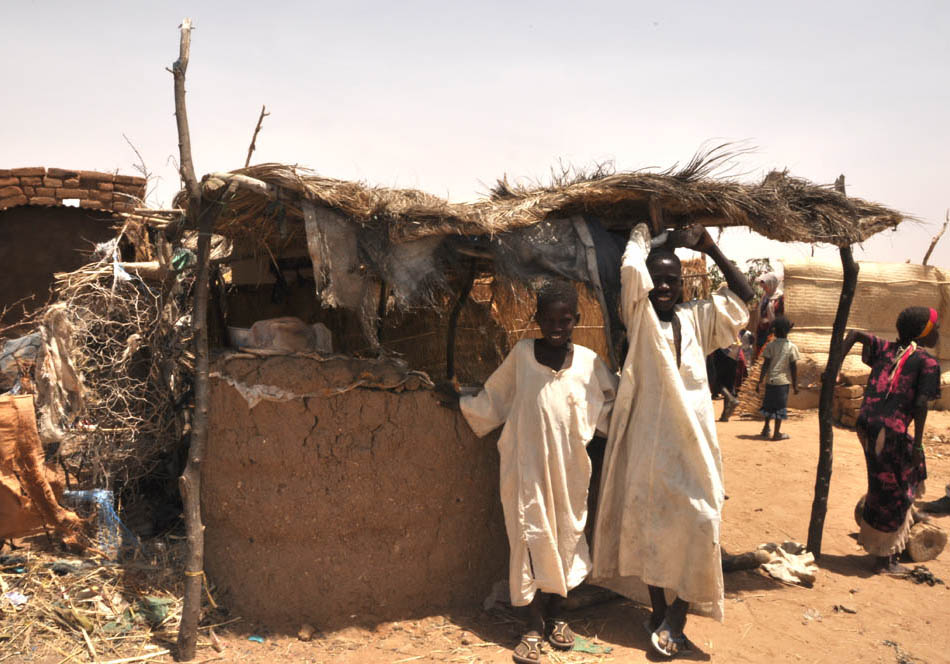The ICJ said today that courts and investigatory bodies set up specially by the Sudanese Government to address human rights violations in Darfur have failed to deliver justice to victims in Darfur.
Speaking in Cairo at the launch of its new report “The Administration of Justice in Sudan: The case of Darfur, the ICJ said fact-finding in Darfur showed that urgent legal and structural changes were needed if the Sudanese Government was to demonstrate it has the political will to bring to justice state officials and members of the Janjaweed militia responsible for crimes against humanity and war crimes.
“After detailed fact-finding in Darfur, this new ICJ report documents the realities of the investigations and handful of trials mounted by the Government in Darfur”, said Said Benarbia, ICJ Legal Officer for the Middle East and North Africa.
The Government of Sudan has repeatedly refused to cooperate with the International Criminal Court (ICC), arguing that Sudan’s judiciary is competent and willing to dispense justice.
“Our research shows that the Government of Sudan has not shown political will to bring perpetrators to justice, the courts are neither independent nor impartial and a range of national laws make the courts incapable of meting out justice in Darfur in a way that reflects the gravity of the crimes.” said Said Benarbia.
The ICJ expressed particular concern about the dangers faced by victims and witnesses in Darfur. «Victims and witnesses are reluctant to lodge complaints with the police because they fear intimidation and harassment, especially in cases of alleged rape and the laws of evidence in court make it very difficult to convict perpetrators of sexual violence», said Said Benarbia.
The ICJ report examines the details of eight criminal cases that have been handled so far by the Sudanese Special Criminal Court on the Events in Darfur (the SCCED), involving 30 defendants, 21 of whom have been military or law enforcement officials.
Five low-ranking officers were sentenced to prison and five others sentenced to death. The SCCED has not addressed the criminal responsibility of senior-level Sudanese officials, partly because Sudanese law does not recognise the responsibility of commanders for the actions of their subordinates. All the defendants were charged with ordinary crimes, as Sudanese law does not criminalise most war crimes and crimes against humanity. None of the defendants have been from the Janjaweed militia.
“Although the SCCED has dealt with a few cases of human rights violations, the trials do not even begin to reflect the gravity and magnitude of the crimes committed in Darfur,” said Said Benarbia.
The trials do not address the large scale attacks on civilians in Darfur documented by UN experts and non-governmental organizations, involving the killing of civilians, torture, enforced disappearance, destruction of villages, rape and other forms of sexual violence, pillaging and forced displacement, conducted on a widespread and systematic basis.
The ICJ report examines how Sudanese military, police and government officials enjoy impunity for their actions because of a sophisticated system of immunities that protect them from prosecution for human rights violations. When these are insufficient, the Sudanese President has stepped in to grant amnesties or pardons.
The report shows how the SCCED does not meet international standards of independence and impartiality. It was established, not by law, but by the Chief Justice, who is himself appointed by and accountable to the President. The SCCED operates in a judicial environment in which historically, structurally and in practice, the courts are dependent on and compliant with the executive. The Government has also created laws to underpin its control of the judiciary. The independence of the judiciary has also been undermined by a web of military, security, police and other exceptional courts that assist in protecting state officials from accountability.
“The SCCED must not be manipulated to promote any political agenda and the Sudanese Government should cease all interference in the judiciary”, said Said Benarbia.
The ICJ urged the Government of Sudan to bring existing laws into line with the 2005 Interim National Constitution and Sudan’s international obligations, and to provide full remedies, including compensation and rehabilitation, to victims of the conflict in Darfur, and ensure that victims and witnesses have access to courts, without reprisals for their testimonies.
The ICJ urged the Government of Sudan to comply with relevant UN Security Council resolutions, especially Resolutions 1769 and 1593, and to fully cooperate with the ICC and its investigation of the situation in Darfur.
“The Government of Sudan must arrest and surrender to the ICC Ahmed Harun and Ali Kushayb who are suspected of being criminally responsible for war crimes and crimes against humanity committed in Darfur”, said Said Benarbia.
Sudan-Report Justice Darfur-Press releases-2007 (full text, PDF)
Photo by Huffington Post




